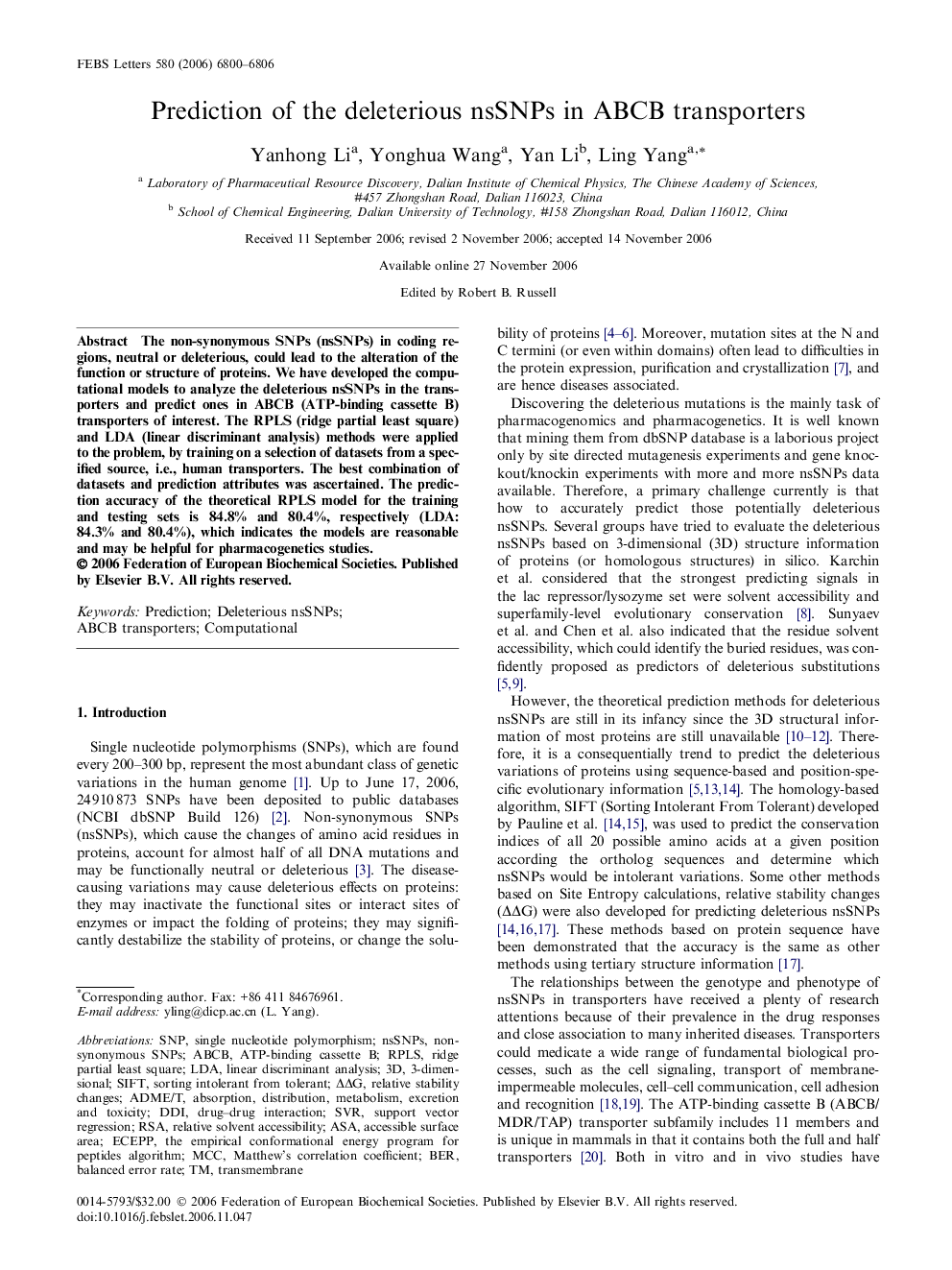| Article ID | Journal | Published Year | Pages | File Type |
|---|---|---|---|---|
| 8384105 | FEBS Letters | 2006 | 7 Pages |
Abstract
The non-synonymous SNPs (nsSNPs) in coding regions, neutral or deleterious, could lead to the alteration of the function or structure of proteins. We have developed the computational models to analyze the deleterious nsSNPs in the transporters and predict ones in ABCB (ATP-binding cassette B) transporters of interest. The RPLS (ridge partial least square) and LDA (linear discriminant analysis) methods were applied to the problem, by training on a selection of datasets from a specified source, i.e., human transporters. The best combination of datasets and prediction attributes was ascertained. The prediction accuracy of the theoretical RPLS model for the training and testing sets is 84.8% and 80.4%, respectively (LDA: 84.3% and 80.4%), which indicates the models are reasonable and may be helpful for pharmacogenetics studies.
Keywords
DDIRPLSABCBNon-synonymous SNPsBERRSASIFTASASVRMCC3-dimensionalnsSNPsLinear discriminant analysisLDAdrug–drug interactionabsorption, distribution, metabolism, excretion and toxicityRelative solvent accessibilitySupport vector regressionaccessible surface areaSorting Intolerant From TolerantSingle nucleotide polymorphismSNP
Related Topics
Life Sciences
Agricultural and Biological Sciences
Plant Science
Authors
Yanhong Li, Yonghua Wang, Yan Li, Ling Yang,
